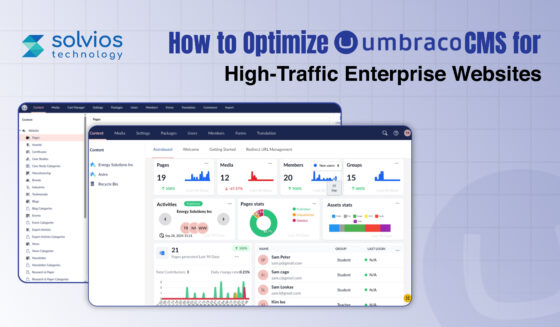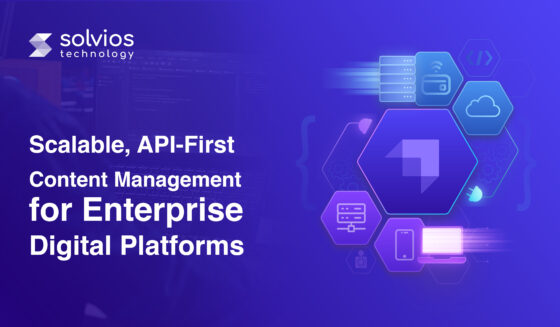
Data integration is as necessary as project implementation. Data integration with a salesforce partner is simpler to do and simpler if done right in the first attempt. But it can get messier after a few mistakes. Salesforce Integration does not start with the process itself, but it starts with fewer questions such as how to get ready, what practices you need to implement, and many more.
Your data should be timely, relevant, and actionable, but on other hand, it does not mean it should be real-time, exhaustive, and bi-directional. You will provide consequential value by starting with the most admissible data. Below are some key points to put your integration strategy on a solid foundation.
1. Data verifications for Salesforce
There are a few intriguing reasons as you may move information from outside frameworks into Salesforce, as you may have to:
- Supplement existing records
- Influence Workflow to automate business measures
- Leverage Salesforce’s analytics
- Leverage Salesforce’s record and field-level security model
Notwithstanding, on the off chance that you just need to provide users with supplemental information around Salesforce records, you ought to consider choices that give perceivably without really putting away the data in Salesforce.
Nevertheless, if you simply need to provide users with supplemental data around Salesforce records (e.g., displaying a student’s class schedule to an admissions advisor), you should consider options that provide visibility without actually storing the data in Salesforce.
2. Prioritize the data Quality
There are a few reasons to give utmost importance to data quality.
- To manage service and accountability with accurate and timely information.
- Excellent information is important to manage the effectiveness of service.
- The data quality prioritize and ensures the best use of resources
- The quality of data also reinforces the decision-making process.
For most of industry personnel, the data quality process starts with data cleansing. But it can be a never-ending process as it contains many things which one should sort out such as cleaning outdated data, filling out incomplete data, clearing out the mess of information, clearing the double entries of the same record, and many more. In short, you need to clarify all this mess of data before going on with the data quality process.
Nowadays, there are multiple tools available that can keep your account and contact information clean. This can lead you to kill the data quality problems at the source. Excellent quality source data is necessary at all times and to achieve that, it has to be anchored in your work processes, as a data quality culture. Users must commit to high data quality, or it will not happen. Measure, reward, and celebrate high data quality.
3. Error handling at the early stage of Salesforce Integration
Having full transparency on data transfer is one of the biggest challenges. The most common mistake one can make is to forget to consider what happens when an error occurs. You need to prepare your system with some additional information to guide you with instructions on what to do when something goes wrong (which almost always does). Start figuring out how to solve the problem and how to bring the system back in synchronization. There are two ways to deal with data transfer errors:
- Only synchronizing a few fields of table
- Transferring all the information
Transferring all the information at the time of Salesforce Integration might be huge and trickier to do manually unless your system does it for you. That is why you should choose a system that has an easy and efficient way to deal with data transfer errors. There are different ways to simplify the handling of data integration errors. Such as an automated error escalation and handling system that can handle errors starting from the shooting of the email to administration integration. It should display an exact error message with direct linking to the data.
4. Choose the best-suited Salesforce Integration Solution for your needs
How to choose the best-suited Salesforce integration services ? It is not as easy to answer which cuisine you want for dinner because it needs to fulfill all your integration requirements along with fulfilling all your system requirements. Many companies have more than just one integration system. Even if your system has an import/export framework, you need to check how well it goes with all the other integrations. The Salesforce integration is that missing link that can take the use of the two systems to a new, higher level and ensure the return on your investment. A good Salesforce integration consulting service can provide a few listed characteristics.
- A proven solution, successfully implemented numerous times, preferably at companies having similar needs to yours or within your industry.
- A Salesforce Integration Consultant should provide a stable and reliable solution that synchronizes data fast and seamlessly.
- The solution can be implemented quickly and easily, for example, by providing pre-configured transfers out-of-the-box.
- A Salesforce Integration Consulting Company should provide a solution that has a deep understanding of both Salesforce and your system because this is the only way you can be sure they will understand the in formations of your databases and the errors that could occur.
- A Salesforce integration solution with a good business understanding and whose domain knowledge will deliver a solution matching your needs.
These Salesforce Integration strategies help you to manage the complexities of the process. Having the best Salesforce integration partners as Solvios Technology can provide other necessary benefits like reducing the cost of services, provide real-time analytics and forecasting, and also manage customer relationships more effectively.
Schedule a Meeting with our Salesforce consultants for Salesforce Integration services.
Get in Touch Now!Tags
Related Blog
Want to get started with App Development?
These applications are acquiring enormous prevalence by offering hands-on enterprise mobility solutions for organizations around the globe.
Start A ConversationLatest Blogs
Our Partnerships






















